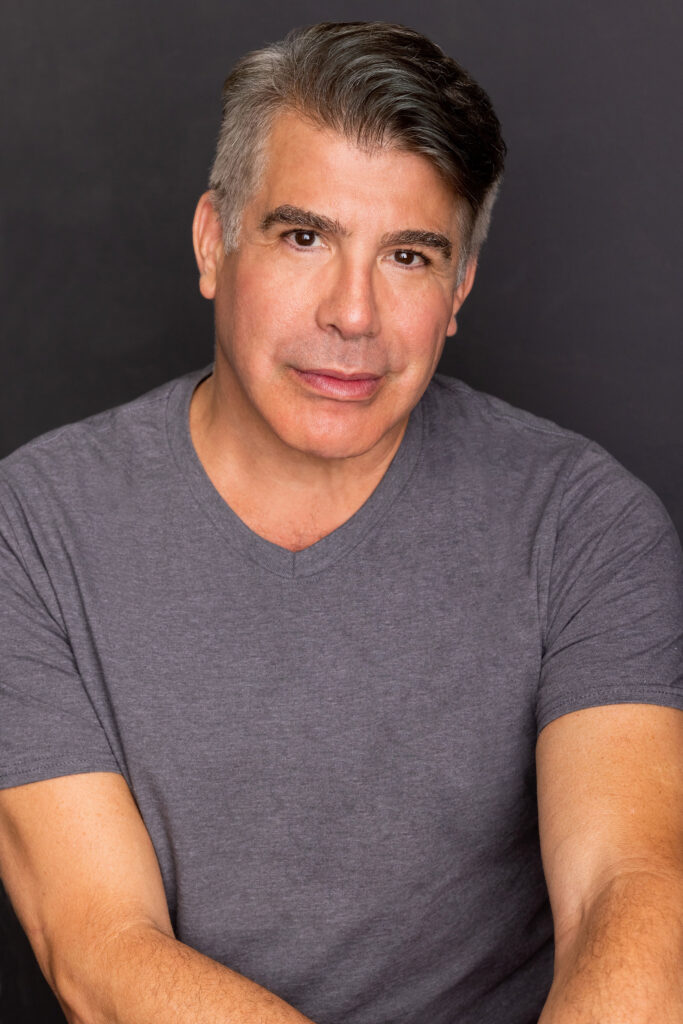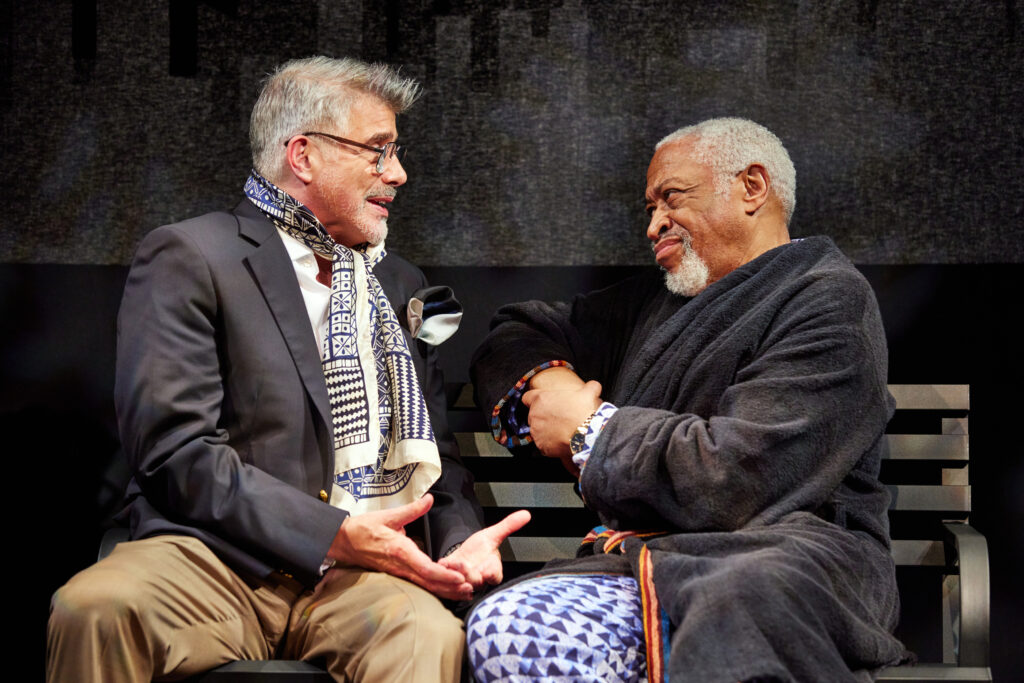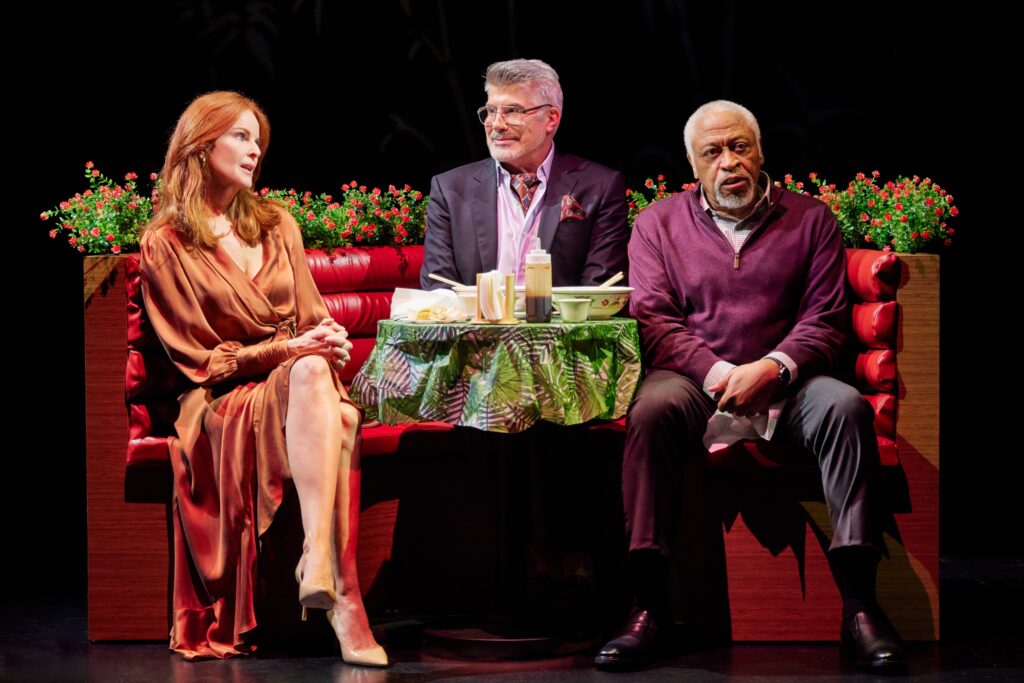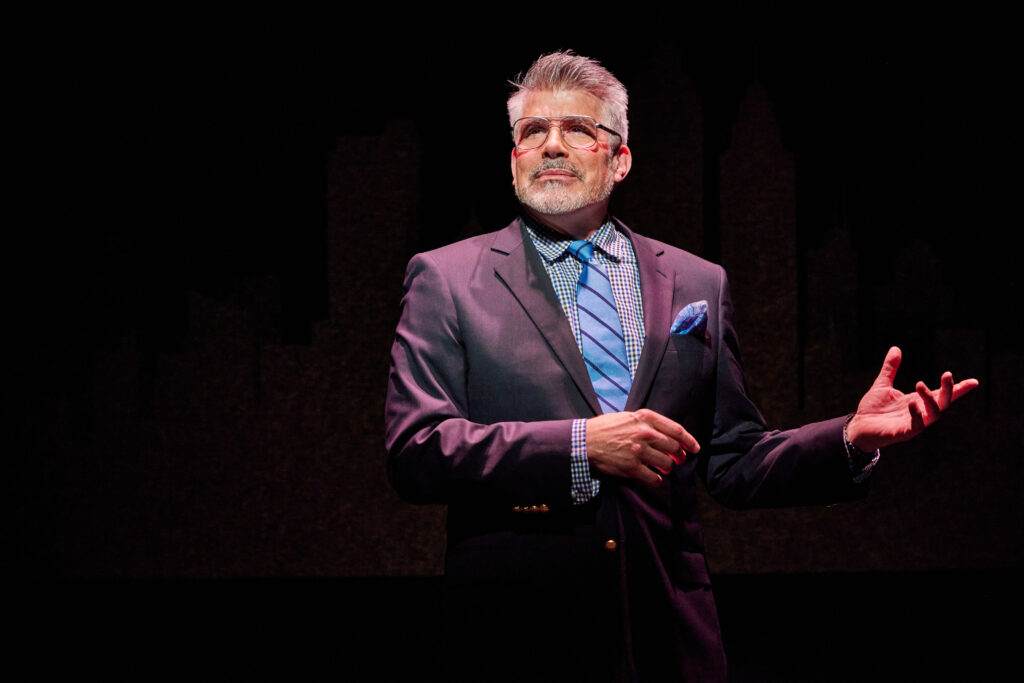Out acting legend Bryan Batt takes the lead
Bryan Batt is adding to his extensive list of stage and screen credits with his starring role in the world premiere of Pay the Writer.
The new play, a topical comedy-drama, is written by New York Times best selling author Tawni O’Dell and directed by Karen Carpenter (Love, Loss, and What I Wore) and is now playing through September 30 at the Pershing Square Signature Center, Manhattan.
Bryan Batt has been a familiar and beloved presence onscreen and stage, delighting us since the get-go in Jeffrey (1995) and then in AMC’s acclaimed Mad Men when he memorably played Salvatore Romano, the closeted art director for the Sterling Cooper agency (the role won Batt two Screen Actors Guild awards).
Batt’s impressive Broadway outings include Sunset Boulevard, Cats, La Cage aux Folles, Saturday Night Fever, and Paul Rudnick’s Jeffrey on stage. In Pay the Writer, Batt plays Bruston Fischer, a gay literary agent who has had a 40-year partnership with his client, a world famous Black literary legend.

Queer Forty caught up with the busy polymath between performances to discuss his new role, his love of his hometown New Orleans, and his happy marriage to husband Tom Cianfichi.
“The show isn’t strenuous,” says Batt. “It’s just a little bit emotional. We’re having a wonderful time.” While the play might not be strenuous or extreme, it’s very moving and features Batt in the leading role of Bruston, an out gay agent who is dealing with the arc of his life and that of his client’s. “It spoke to me on many many levels, mostly about aging and leaving and preparing to go and leaving this life; an also making amends—what is forgivable and what is not.”
Batt, who is 60, says the characters in the play embody the theme of humanity and how it’s sometimes lacking in those people who achieve greatness in their lifetime. As for himself, he says he has received the compliment from a fellow student that he hasn’t really changed much since high school. “I guess my mother did a good job,” he says, noting that his success came as a working actor (“that’s all I really wanted to be”) rather than as a superstar. “I’m so grateful to continue at this age to act.”

On the topic of getting older, Batt sees the only downside for him as physical. Having danced extensively on Broadway he has had both knees replaced. Right now he is nursing a foot injury that requires surgery. “Inside, mentally, I still feel as though I’m 25, 30,” he laughs. Another aspect of aging is being appalled when he goes to the theater at seeing audience members attending wearing flip-flops and cut-offs, he laughs.
Batt is very dapper and has a keen sense of aesthetics, which is why his homewares store in New Orleans—Hazelnut—is so lovely. And as a mature gay man, he is also interested in keeping up with the paradigm shifts in our community: pronouns, and usage of the word queer. “It was very hard because growing up queer is what they called you before they beat you up,” he says matter-of-factly. “It also means odd and different. In the Sondheim song ‘Send In the Clowns’—isn’t it rich, isn’t it queer—it means different. I’m different but I’m not odd.”
Batt, who has written three books and performed for just about every medium also paints and designs and is so prolific largely due to his positive mindset when it comes to life.
“I believed early on that life is an and proposition, not an or proposition. You could do this and that.” Batt resisted being put in categories or being typecast as an actor when going up for various parts. “If they’re trying to put you in a box, get your box cutter out.”
Batt came out to his family in the 1990s and has played both straight and gay. He is in favor of straight actors playing gay and vice versa. “If everyone plays just who they are, it actually limits the acting pool.”
But in those roles where Batt has brought his own sexuality to the character’s, such as he did in Mad Men and now in Pay the Writer, the effect is very rich and layered. As a side note, Batt reveals that when Mad Men showrunner Matthew Weiner was casting Salvatore, he specifically wanted a gay man in the role. “The writing was just perfection,” says Batt of Mad Men. “All we had to do was show up and be true.”
And the script for Pay the Writer might not be quite up there with AMC’s seven-season blockbuster but it’s deep and nuanced and has some terrific lines for Batt, which he relishes. “As hard as it is to say, I love the monologue I do about my mother, and the books, and my father kicking me out of the house.”
Bruston’s journey out of obscurity and homophobia into the Manhattan literary world as a successful gay man is one of the joys of the play. “It just really resonated,” says Batt who did the workshop of the play last year with Marcia Cross. There were many rewrites, a compressed rehearsal period of three weeks, which is unheard of for a new play. “We’re just discovering it,” says Batt, of the script and some of its gems.

When Batt looks at his own life, and checks it for a narrative or legacy, as a literary giant like a Bruston or a Cyrus might, he remains lighthearted, grateful and philosophical. “There are a few things that didn’t happen, career-wise. But something else happened that came about and took me in a different direction. I’m very blessed in my chemistry that I don’t look back with any regret. I try to just go forward because I believe that’s the way time goes. I’m trying to be as upbeat as possible and look to the future.”
This must be part of why he’s had a successful longterm relationship with his husband, Tom, who he met in dinner theater in Akron, Ohio, 34 years ago.
Growing up in New Orleans Batt didn’t know any gay people in his family circles. “I was only shown love in heterosexual examples. Every book I read, every movie, every TV show, my parents, my parents’ friends… I did not know that love could exist with same-sex couples. When I met Tom I went, ‘Oh, that’s love. That’s what I feel. That’s what everyone’s talking about.'”
Both men decided to stick with the relationship despite ups and downs, including the height of the AIDS crisis. “At the end of the day, you ask: Do I love this person? At the end of the day, the grass may be greener but it’s just grass,” he says. “We’re just two old socks. And I love it.”
For now, Batt is in New York with the play, which is one joy, but he can’t wait to get home to Tom, the store, their dog, their “homestead,” is how Batt describes it.
“It’s been an interesting life. I just want it to continue on!” he sings.
Get tickets to Pay the Writer here.






